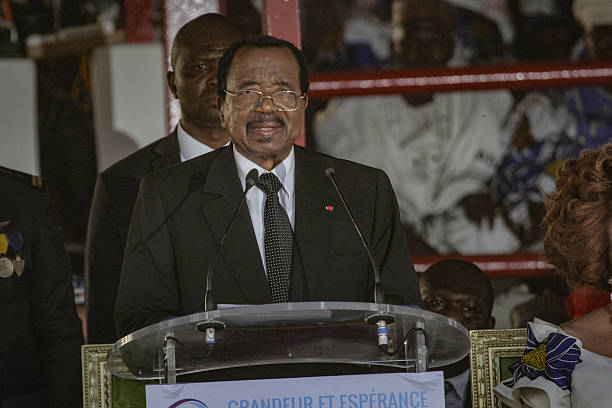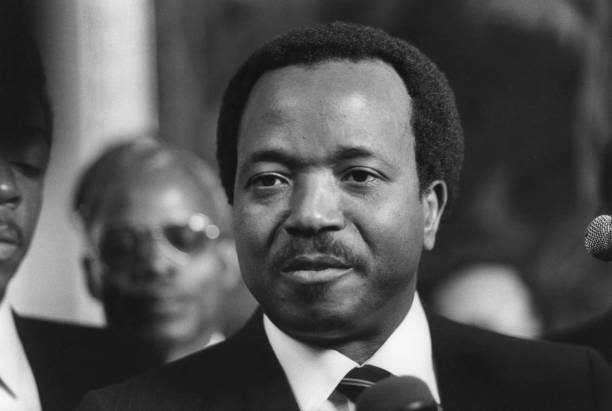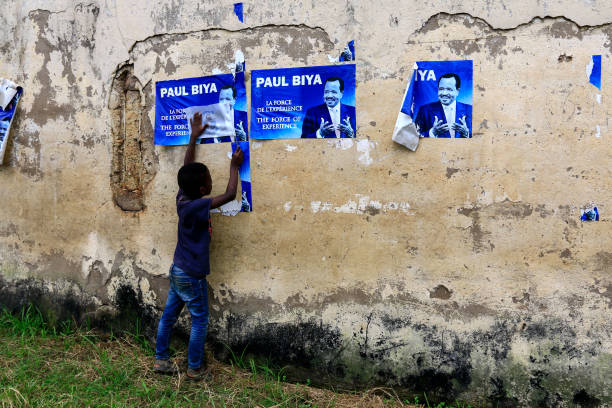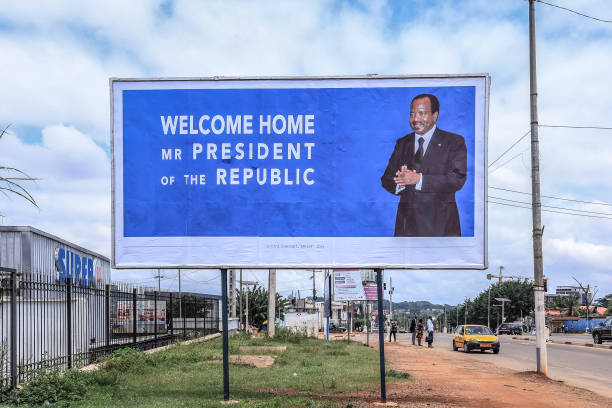Cameroon’s Longest-Serving Leader Seeks Another Term: A Test for Democracy

Cameroon again finds itself on the verge of yet another familiar election,92-year-old President Paul Biya who has been in charge for more than four decades now. His re-election campaign at this point now seems less like democracy and more like déjà vu.

Biya took over back in the early ‘80s after President Ahidjo bailed. People probably thought, “Hey, maybe things’ll stay steady.” Well, steady turned into a never-ending marathon. The guy’s dodged coups, drama, and a whole lot of grumbling by playing it cool—on the surface, anyway. Scratch a little deeper and the tension’s pretty obvious.
2008 was a wild card year. That’s when Biya just scrapped term limits like they were an annoying popup ad. Since then, elections have been about as suspenseful as a rerun. The campaigns are quiet, the opposition’s basically playing with one hand tied behind their back, and you already know who’s getting the big chair at the end. This time, the fact that he’s pushing for an eighth term at his age? People are more tired than shocked, especially young folks who can’t even picture anyone else as president.
His campaign keeps shouting about “greatness and hope”—as if anyone’s buying that after forty years. Loyalists say, hey, at least Cameroon hasn’t gone off the rails like some neighbors. But critics? They’re not buying the “stability” line. To them, it’s just code for nothing ever changes except the excuses.
At the same time, ordinary people are being pinched by soaring prices, hardly any jobs, and a COVID recovery that never quite materialized. Mix that with the chaos from separatists and Boko Haram, and government trust is on thin ice. For most young Cameroonians, the election is merely the next chapter in a saga they never signed up for—a dry tradition that makes the establishment feel at ease while the rest of us wait, and wait, for something new.
And apparently, depending on who you ask, Biya's endless rule may be seen as a sign of strength, or just a result of a country stuck in quicksand?. Some older folks like the routine. Most of the youth? They just want a shot at a future that’s actually theirs.
Fragmented Opposition, Tired Institutions
Cameroonian opposition is kind of a mess. They talk a big game, sure—guys like Issa Tchiroma love to shout about “new energy” and all that jazz—but it’s the same old story underneath. The opposition just can’t get it together. Nine miscellaneous challengers competing for scraps, splitting the vote across party lines, tribal lines, whatever. No one can unify behind one proposal, so everyone cancels each other out..
And that’s before you even get to the dirty tricks. Good luck getting on state TV if you’re not with the ruling party. Fundraising? Busted before you even start. Want to hold a rally? The authorities either shut it down or just straight-up ignore your permit. International observers come in, shake their heads, and call it “managed democracy”—elections are basically a show, but nothing ever really changes at the top.
People notice, trust me. There’s a whole vibe of “why bother?” in the air. Most folks see elections as paperwork, not as a real shot at change. Young people especially—they’re more hyped about leaving the country than voting. One student in Yaoundé put it perfectly: “We study, we vote, and nothing changes.” That hit home. It’s not just one kid—it’s the whole mood in the cities.
And then there’s Biya, the man himself, who’s basically turned ghost mode on public life. Half the time, he’s chilling in Switzerland “on private stays”—which everyone knows is code for “I’m outta here, deal with it.” Critics love to point out he’s running the country by remote control, handing the day-to-day stuff off to his clique and family. The line between state business and personal business? Totally smudged.
But don’t let that fool you. Biya’s crew is tight. The ruling CPDM party is everywhere, especially out in the sticks. Loyalty isn’t just about charm—it’s about jobs, favors, and who gets what. That’s the real glue holding the whole thing together.

Still, you can’t help but hear the rumblings. Up north and in the northwest, people are getting louder about wanting change. Civil society groups, churches, even Cameroonians abroad—they’re all pushing for real elections and a new generation to take over. And definitely they are not in charge yet, but the conversation is shifting, mostly online. Social media has become a voice for the youths . So who knows? Maybe the script isn’t totally locked in yet.
The Weight of Time and the Problem of Tomorrow
If President Biya is elected to a next mandate—which the overwhelming majority of analysts expect to happen—it will ensure not only a presidency but an entire political culture built on permanence. Cameroon's institutions, designed to turn around the presidency, have grown dependent on its persistence. That dependence deters reform. Bureaucrats won't move without senior sanction; opposition leaders plan for survival, not change.
The ramifications go beyond politics. The brain drain has accelerated in recent years, as talented young professionals move to Europe or North America seeking opportunity and a respite from leadership fatigue. The comparison with other African nations that have had long-time leaders—Equatorial Guinea or Uganda, say—is hard to avoid. Once hoped for national unity decades ago, what has turned into promise has hardened into inertia.
Biya's old age introduces another queasy reality: succession. Off the record, rumors abound about who's actually in control and what might follow if he can no longer serve. Some analysts point to growing influence of his inner circle, including his relatives, as evidence that Cameroon's future will be a dynasty rather than democracy.
Yet, among the exhaustion, there is also a silent strength in citizens. In neighborhood bazaars, grassroots projects, and shadow civic organizations, Cameroonians continue building means of self-reliance that politics has not offered. Clerics and creatives increasingly speak of "moral rebirth" and "the post-Biya generation." Such tides may not yet hold political power, but they are the seeds of a less one-man-dependent future.
Finally, Cameroon's work is not so much to fill a president's seat—it is to remake the government. The question is whether or not the country can shift from institution-less dependence on personality to institution-based trust. If it does not, elections will remain ceremonies of continuity, not milestones of transformation.

For now, Biya's grip persists. But time, as experience teaches, is the one enemy no ruler can always keep suppressed. Whether his recent proposal delays instability or continues to deepen rot, the decision—at least on paper—lies with Cameroonians.
You may also like...
Bundesliga's New Nigerian Star Shines: Ogundu's Explosive Augsburg Debut!

Nigerian players experienced a weekend of mixed results in the German Bundesliga's 23rd match day. Uchenna Ogundu enjoye...
Capello Unleashes Juventus' Secret Weapon Against Osimhen in UCL Showdown!

Juventus faces an uphill battle against Galatasaray in the UEFA Champions League Round of 16 second leg, needing to over...
Berlinale Shocker: 'Yellow Letters' Takes Golden Bear, 'AnyMart' Director Debuts!

The Berlin Film Festival honored
Shocking Trend: Sudan's 'Lion Cubs' – Child Soldiers Going Viral on TikTok

A joint investigation reveals that child soldiers, dubbed 'lion cubs,' have become viral sensations on TikTok and other ...
Gregory Maqoma's 'Genesis': A Powerful Artistic Call for Healing in South Africa

Gregory Maqoma's new dance-opera, "Genesis: The Beginning and End of Time," has premiered in Cape Town, offering a capti...
Massive Rivian 2026.03 Update Boosts R1 Performance and Utility!

Rivian's latest software update, 2026.03, brings substantial enhancements to its R1S SUV and R1T pickup, broadening perf...
Bitcoin's Dire 29% Drop: VanEck Signals Seller Exhaustion Amid Market Carnage!

Bitcoin has suffered a sharp 29% price drop, but a VanEck report suggests seller exhaustion and a potential market botto...
Crypto Titans Shake-Up: Ripple & Deutsche Bank Partner, XRP Dips, CZ's UAE Bitcoin Mining Role Revealed!

Deutsche Bank is set to adopt Ripple's technology for faster, cheaper cross-border payments, marking a significant insti...
